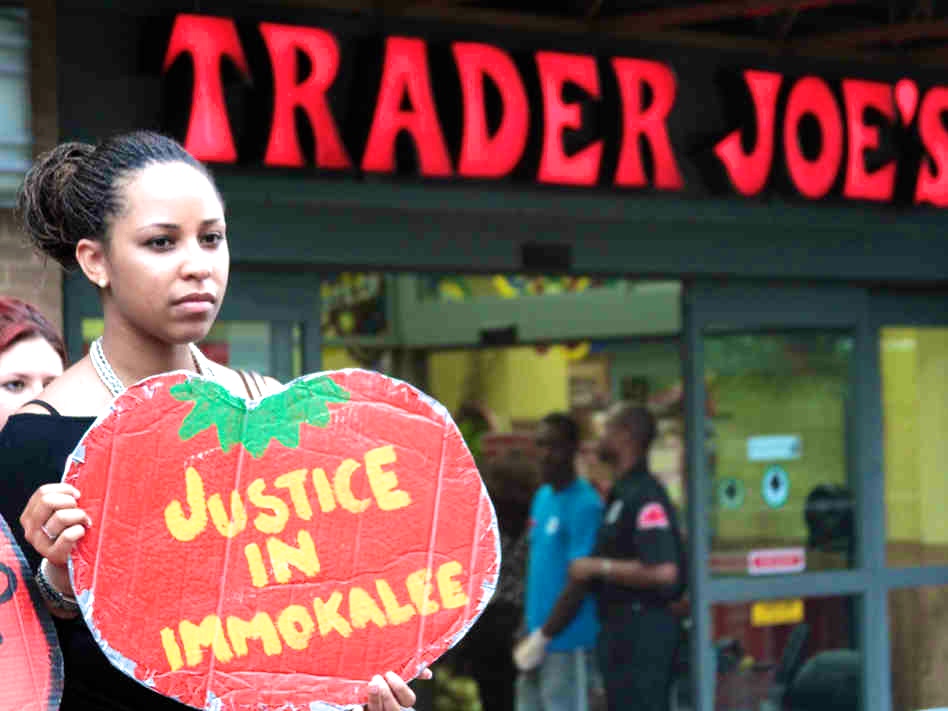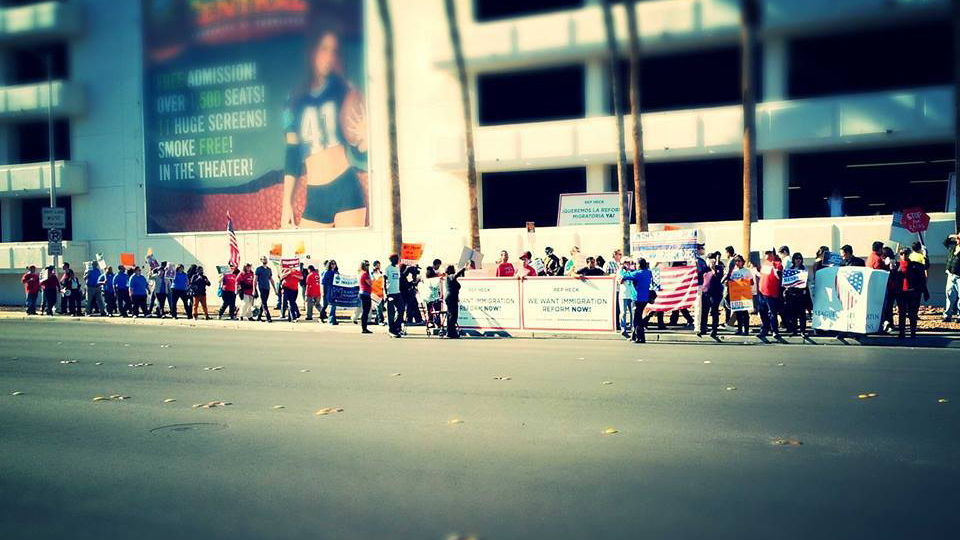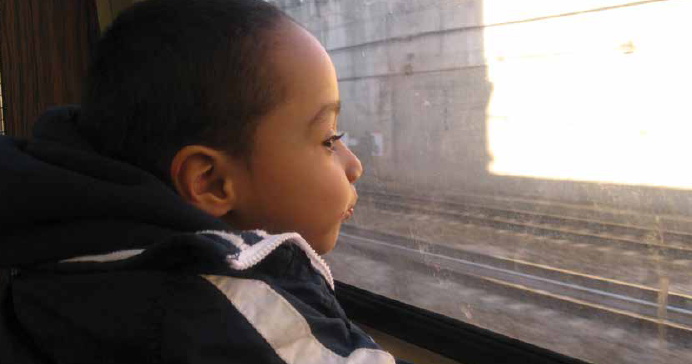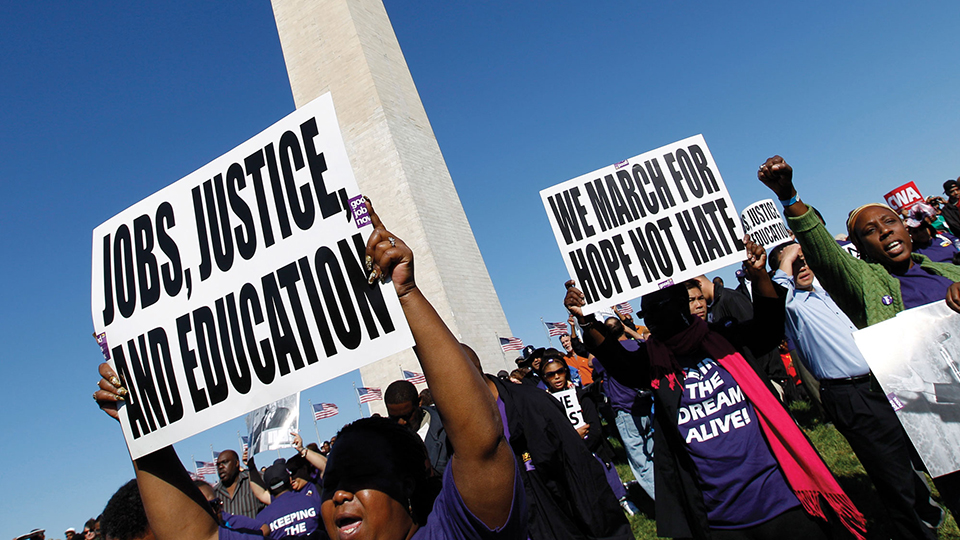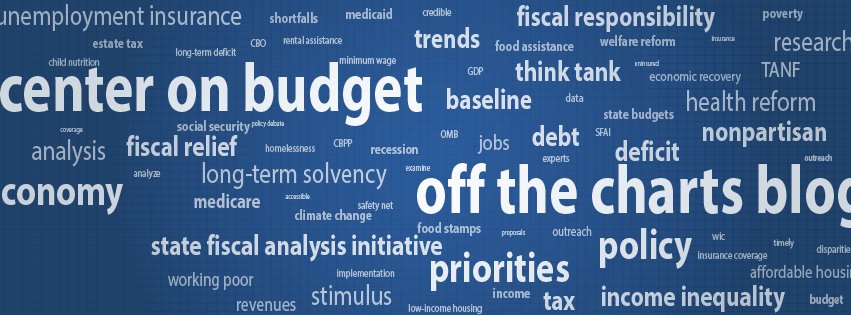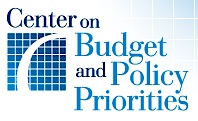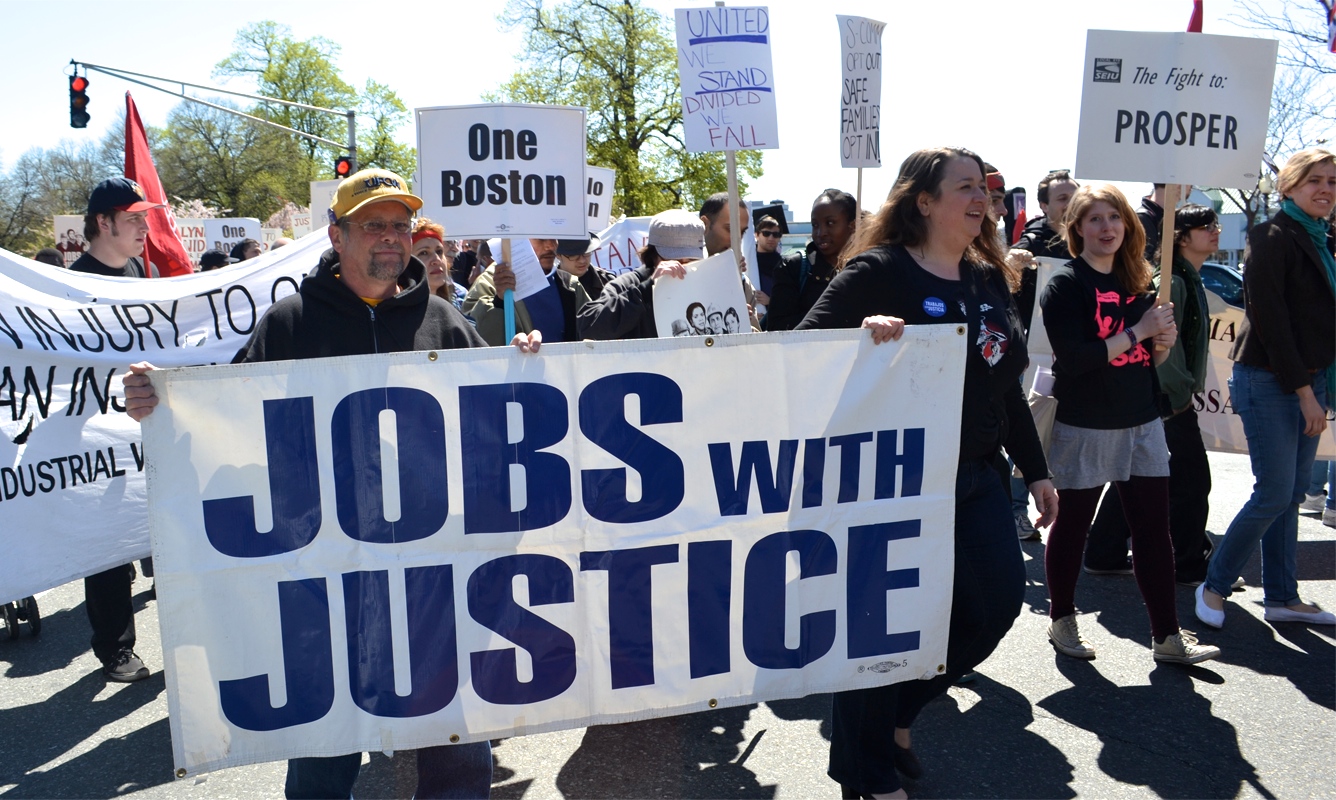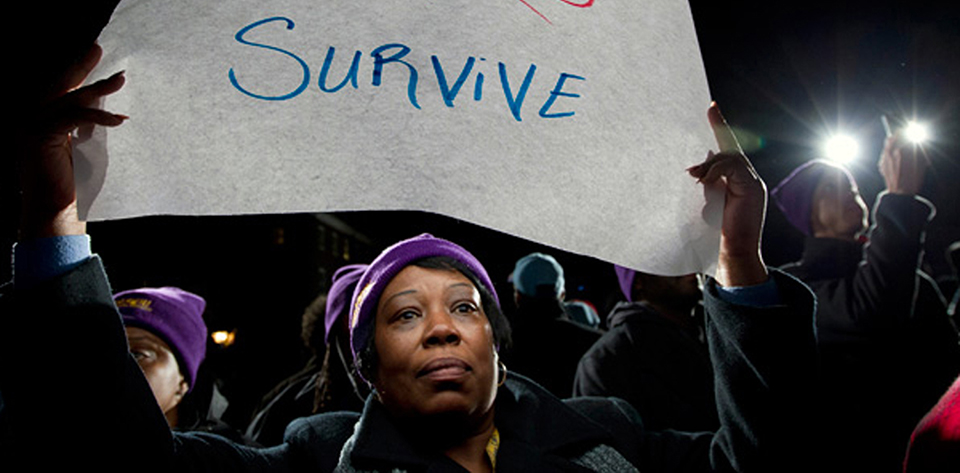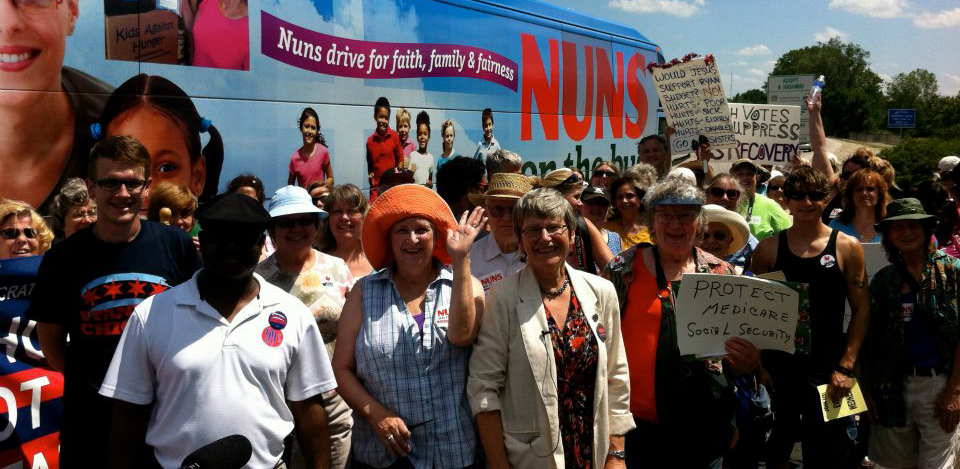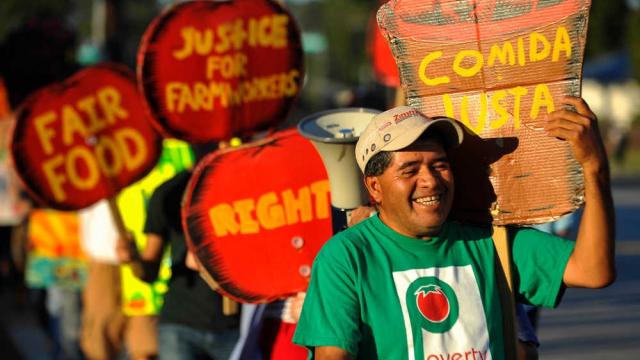
With more than 46 million people living below the poverty line, struggling to survive on $19,530 or less for a family of three, and with more than one in three Americans living on less than twice that amount, scrimping to pay for basics, this country will require a broad-based movement to reverse the decades of failed national imagination.
The groups listed below are all worth watching as they do just that: galvanize communities, arm activists with information, and fight for living-wage jobs, stable housing and a strong safety net that catches people when they fall.
1. Coalition of Immokalee Workers
If you want to see what is possible through grassroots organizing by those who are most affected by poverty — or what it means to set a seemingly unreachable goal and persevere, or understand your opposition and find new ways to challenge it — look no further than the Coalition of Immokalee Workers.
When the CIW was founded in 1993, it was as a small group of tomato farmworkers in Immokalee, Fla., trying to end a 20-year decline in their poverty wages. Who is historically more powerless than farmworkers? Yet today, most major buyers of Florida tomatoes have signed agreements with the CIW to pay an extra penny per pound for tomatoes. These agreements have resulted in over $11 million in additional earnings for the workers since January 2011.
In addition, through its Fair Food Program, the CIW has persuaded corporate buyers to purchase tomatoes only from growers who sign a strict code of conduct that includes zero tolerance for forced labor or sexual assault. As a result, the majority of growers (those accounting for 90 percent of the tomato industry’s $650 million in revenue) have agreed to that code. If major violations occur but don’t get corrected — and there’s a 24-hour hotline for worker complaints — corporations will not buy from those growers.
The Fair Food Program serves as a new model of social responsibility, and its influence is clear in the recently signed agreement between retailers and factory owners in the Bangladesh garment industry. Follow the CIW not only to get involved with farmworkers but for a sense of what can be achieved through strategic, fearless organizing.
2. Center for Community Change
For 45 years, the Center for Community Change has worked with low-income communities and local grassroots organizations to fight poverty. The CCC has intentionally worked behind the scenes, keeping the spotlight focused on members of the communities instead and organizing around issues ranging from voter registration, affordable housing and community development to, more recently, immigration reform, healthcare and retirement security.
Executive director Deepak Bhargava says, “We have chosen as our great task in this next era to build a nationwide movement against poverty and for economic justice. The core issue is jobs — making sure that good jobs are available and accessible to everyone.” The CCC plans to work with grassroots organizations at the local and state levels, and then form coalitions at the national level, to demand policies that create good jobs with good wages. Its goal, Bhargava says, is to help build “a massive, diverse, boisterous, energized and organized social movement.”
3. Children’s HealthWatch
This country’s political leaders talk a good game about their commitment to the well-being of children, but in too many cases, their actions tell a far different story. That story is captured, in part, by the pediatricians and healthcare professionals at Children’s HealthWatch.
CHW collects data at pediatric clinics and hospitals to show the real impact of public policy choices on the health, nutrition and development of children up to the age of four. CHW research has shown, for example, that children receiving SNAP (food stamps) are less likely to be food insecure, underweight or at risk for developmental delays than their peers who are likely eligible for SNAP but not receiving it.
CHW has also demonstrated the importance of affordable housing for children’s health, showing that children in households that move frequently or fall behind on rent are significantly more likely to be underweight, in fair or poor health, and at risk for developmental delays than their stably housed peers. And CHW has examined energy insecurity, showing that children in families struggling to afford utilities and keep their homes sufficiently heated or cooled are more likely to be food insecure, hospitalized at some point since birth, or to have moved twice or more in the past year.
By using science to evaluate whether our policies demonstrate a commitment to children and then proposing alternatives, CHW’s research guides activists past the bombast and rhetoric of today’s policy-makers.
4. Half in Ten
This campaign — which I am currently advising — is a project of the Coalition on Human Needs, the Center for American Progress Action Fund, and the Leadership Conference on Civil and Human Rights, and it has 200 partner organizations across the country. Its mission is simple: to cut poverty in half over 10 years, just as we did between 1964 and 1973.
Through its comprehensive annual report, Half in Ten tracks the country’s progress toward this goal and outlines the many policies that could help slash poverty. In its 2007 inaugural report, Half in Ten demonstrated how poverty could be reduced by 26 percent simply by passing a modest increase in the minimum wage (to $8.40 at the time), expanding the earned-income tax and child tax credits, and providing affordable childcare to low-income families, among other proposals. Our leaders failed to make those recommended policy changes, and then the economy crashed, burying ever more Americans in deeper holes.
But Half in Ten keeps pushing toward its goal. In addition to policy analysis, the campaign mobilizes local groups in the field to speak out and take action during congressional policy debates. The campaign also works through its “Our American Story” project to ensure that low-income people have opportunities to tell their stories to the media, policy-makers and other advocacy groups. Follow Half in Ten (#TalkPoverty) to get a sense of the anti-poverty policy landscape, take action at the federal level, and hear powerful stories about individuals and families who are struggling to survive in this broken economy.
5. Occupy Our Homes/Home Defenders League
Many of us would like to believe that the foreclosure crisis is over, but the fact is that far too many people are still losing their homes because banks refuse to modify mortgages, fail to return phone calls, or simply (and scandalously) file fraudulent paperwork. If my family or neighbors were ever in a dire situation with a bank that refused to work with them, Occupy Our Homes and the Home Defenders League (HDL) are the allies I would want on my side.
With community partners in more than 25 cities and states, these activists help homeowners organize protests, call-ins to bank officials and other actions to cut through the bureaucratic roadblocks that individuals and families encounter when they deal with the banks. They also show up with neighbors to stop forced evictions.
In May, Occupy and HDL mobilized hundreds of people for a sit-in at the Justice Department, successfully shaming the feds and playing a key role in restarting stalled litigation against Wall Street. They are also collaborating with dozens of local groups, large and small, to rebuild the wealth stripped out of communities of color by pressing cities to use their power of eminent domain to do what the banks have refused to do: enact wide-scale principal reductions.
6. Center on Budget and Policy Priorities
As we approach the fiftieth anniversary of the War on Poverty, conservatives are deploying bogus “studies” and revisionist history to attempt to discredit programs that are not only vital to people who are struggling, but have been proven effective in preventing much higher poverty rates. The Center on Budget and Policy Priorities does a forceful job of countering this misinformation with analyses that — tellingly — conservatives rarely challenge.
During policy debates about programs like SNAP, TANF (welfare), healthcare, housing, Social Security, disability insurance, Medicaid, Medicare and other domestic priorities, you can count on CBPP experts to provide vital, clear-eyed analysis of how government programs work. Follow the work of policy wizards like Arloc Sherman, LaDonna Pavetti, Liz Schott, Jared Bernstein, Robert Greenstein, Douglas Rice, Kathy Ruffing and others to get the information you need to see through the spin, misinformation and outright lies about key policies that combat poverty.
7. Jobs With Justice
For twenty-six years, Jobs With Justice has built powerful coalitions with labor, community, student and faith leaders to protect and advance the rights of working people. Most recently, Jobs With Justice has played a pivotal role in the national Caring Across Generations campaign, which helped secure historic overtime and minimum-wage protections for homecare workers. Its Debt-Free Future campaign has mobilized students and concerned citizens to make college more affordable, expose abusive private lenders and win debt relief for working families. Jobs With Justice is also a critical partner in challenging the exploitative labor practices of employers like Wal-mart and the large fast food chains, and in protecting the right of immigrant workers to organize without threat of retaliation.
With its savvy use of strategic communications, original research and on-the-ground mobilizing, Jobs With Justice is challenging the structural problems of our economy in creative and effective ways.
8. Western Center on Law and Poverty
Translating grassroots activism into legislative victories will require strong inside/outside partnerships at the local, state and federal levels. One group that has mastered this delicate dance is the Western Center on Law and Poverty in Sacramento, Calif.
California is the seat of some of the poorest congressional districts in the nation, and it’s also home to more poor Americans than any other state. For over a decade, the state government has been dominated by budget austerit y — California was the epicenter of the “no tax” pledge — as well as the kind of budget brinkmanship that now plagues Congress. But in part through the Western Center’s leadership, advocates have moved from simply defending against cuts to articulating a shared vision for a more vibrant, inclusive economy.
The Western Center has spearheaded new alliances among women, immigrants, the working poor, people without homes, the formerly incarcerated, food stamp recipients, labor union members, college students, youth and others, creating new opportunities for low-income people to get involved in effecting change.
The result has been a series of notable victories, such as requiring call centers serving Californians who need public assistance to be located in-state in order to create jobs; restoring dental care through Medicaid; enacting protections against excessive bank fines or fees; introducing a Homeless Bill of Rights to outlaw the criminalization of homelessness; and protecting SNAP from federal cuts. The Western Center and its allies have also defended against bad policy proposals like the ALEC-inspired legislation to drug-test public assistance applicants. Follow this group to see how diverse coalitions get results at the state level.
9. Center for Hunger-Free Communities, Witnesses to Hunger
Founded in Philadelphia in 2008, Witnesses to Hunger is a research and advocacy project led by mothers and other caregivers of young children who have experienced hunger and poverty. Through photography and testimonials, Witnesses advocates for change at the local, state and national levels. There are now more than eighty Witnesses in various cities, including Philadelphia, Camden, Boston and Baltimore. (A new chapter in Sacramento is in the works.)
In addition to lobbying Congress on issues like food stamps, welfare and affordable housing, Witnesses is vocal in its insistence that people living in poverty be included in conversations among advocates and political leaders in Washington, where low-income people are too often talked about but never heard. Follow this group to learn about poverty and hunger — which policies help, which policies harm — and to work directly alongside those living in poverty.
10. NETWORK
While the real power of an anti-poverty movement will come from the grassroots, a national leader who mobilizes people of faith and speaks with prophetic authority can play a powerful role — especially since the opposition so often cites Scripture as a justification for stripping the safety net.
Sister Simone Campbell and NETWORK, a Catholic social justice lobby, captured the attention of millions of Americans as well as the mainstream media with their 2012 “Nuns on the Bus” Tour challenging Congressman Paul Ryan’s reckless budget proposals. Since then, Sister Simone has proved that she can not only tap into a network of progressive faith-based organizations, but also respond effectively to the absurd proposition that charities and religious institutions can address the needs that arise from a broken economy on their own, without the help of government resources. What’s more, she was masterful during Ryan’s hearing on the War on Poverty, eloquently batting away assertions that social programs create dependence and that the minimum wage should be banned, as well as challenges to her own standing as a Catholic.
While an anti-poverty movement will need nonviolent civil disobedience and avenues to express anger and despair, Sister Simone and NETWORK have shown that it’s possible to beat the opposition at its own game.
3 WAYS TO SHOW YOUR SUPPORT
- Log in to post comments

